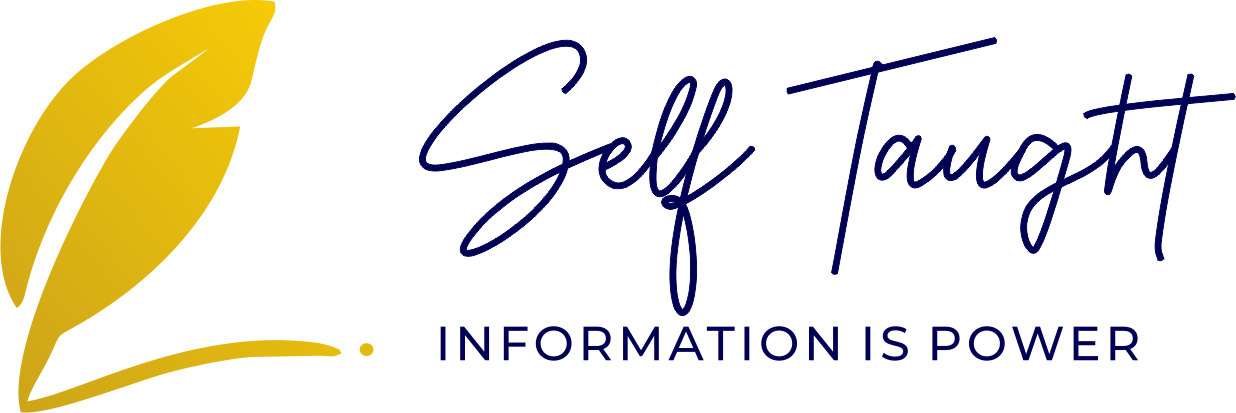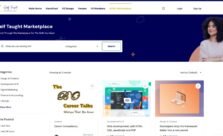The journey toward a fulfilling and rewarding career can be likened to navigating a complex maze with no clear end. Twists, turns, and crossroads can lead us in the right direction or veer us off course. Often, we find ourselves at a career crossroads, questioning our decisions, skills, and interests, unsure of the next step to take. This is where the challenge lies – to make informed decisions, seek guidance, and choose a career path that aligns with our values and aspirations.
Career crossroads are not limited to a specific age or career stage. Professionals from various fields and industries face this dilemma at different career points. It may be due to external factors such as organizational restructuring or job market changes or internal factors such as personal growth, lack of motivation, or burnout.
In this article, we will explore the journey toward finding your ideal career path, provide insights on navigating the career crossroads, and share practical tips to help you make the right choices.
By understanding the factors influencing your career decisions and leveraging the available resources, you can chart a course toward a meaningful and fulfilling career that aligns with your goals and aspirations. So, buckle up, and let’s explore the journey together.
Know Yourself: Identify Your Strengths, Values, and Interests
To find a career path that truly fits you, start with some self-reflection. What are your strengths, values, and interests? What excites or motivates you? The more you understand yourself, the easier it will be to find work you’ll enjoy.
Strengths are the things you’re good at – your talents, skills, and abilities. Maybe you’re great with numbers, love solving complex problems, or have a way with words. Values are the things that are most important to you, like helping others, creativity, or work-life balance. Interests are the areas or subjects that spark your curiosity or passion.
Look for common themes or patterns once you’ve identified your strengths, values, and interests. For example, if you’re skilled at communication, value helping people, and are interested in wellness, the healthcare field could be a great option. If you excel in critical thinking, value innovation, and enjoy technology, a career as a software engineer might fit the bill.
Don’t feel limited to traditional job titles or roles. Many occupations today blend multiple areas, allowing you to leverage all your strengths and interests. Some jobs are also evolving or emerging in new ways. With self-driving vehicles, for example, there may soon be opportunities as “mobility experience designers” or “highway controllers.”
The key is finding work you care about that also leverages your natural talents. When your job aligns with who you are, you’ll be happier, more engaged, and able to achieve success and fulfillment. So take the time to explore yourself.
Explore Your Options: Research Different Career Paths
Do some research on different careers that interest you. Check job sites like Indeed, Monster, and LinkedIn for field listings that spark your curiosity. See what kinds of jobs are out there and what they entail. Make a list of ones that excite you so you can explore further.
Talk to people currently in roles that intrigue you. Ask them questions about what they do day to day, the pros and cons of the job, and how they got into the field. Their insight can help determine if it’s the right path for you.
You might also take career assessment tests to identify your strengths, skills, values, and interests. Then match those to suitable career options. Some highly-rated tests are the Myers-Briggs Type Indicator, Strong Interest Inventory, and Holland Codes assessment.
Don’t feel limited to traditional career paths either. Many people find fulfilling work in new or emerging fields. Do some research on up-and-coming jobs of the future in areas like renewable energy, healthcare, technology, and more. You could be well-positioned for an exciting new career on the cutting edge.
The key is to keep an open and curious mind. Explore many possibilities, not just the obvious ones. Your ideal career is out there—you have to find it! With time and patience, you’ll discover the right path for you.
Gain Experience: Internships, Entry-Level Jobs and Networking
To gain valuable experience in your chosen career path, look for opportunities to intern, take an entry-level job or network.
Internships
Internships are a great way to gain on-the-job experience. Look for internships in your field of interest, even if unpaid. Treat an internship like a real job and work hard to prove your abilities. Ask questions, learn skills, and make professional connections that could lead to job opportunities.
Entry-Level Jobs
Don’t be afraid to start at the bottom. Apply for entry-level jobs in your desired career path to build experience. While the pay may be low and the work tedious, entry-level jobs allow you to learn skills and workplace etiquette. Work your way up by taking on more responsibility and looking for promotions or new job openings with higher pay. Starting from the bottom is how many successful people began their careers.
Networking
Start building your professional network by attending industry events, joining relevant organizations, and connecting with people currently in your desired career. Strike up conversations, exchange business cards, and follow up to express your interest in the field.
Let people know you’re looking for new opportunities to gain experience. Networking is a mutually beneficial relationship, so look for ways to help others connect or share information. You never know when a new connection may lead to an internship, job opening, or other career opportunity.
Gaining real-world experience through interning, entry-level work, and networking is key to navigating your career journey. Don’t expect to land your dream job right away. Be willing to start small, work your way up, and make valuable connections to your ideal career. With hard work and persistence, you’ll get there.
Develop in-Demand Skills
To navigate your career journey, developing in-demand, transferable skills are essential. These skills will make you a strong candidate for more opportunities and help future-proof your career.
Technical Skills
- Coding languages: Python, SQL, Java, etc.
- Software proficiency: Salesforce, Adobe Creative Cloud, Microsoft Office, etc.
- Data analysis: Ability to gather, organize and analyze data to find insights and make recommendations
Technical skills constantly evolve, so continuously learning and improving them will make you a highly sought-after employee.
Soft Skills
Soft skills are interpersonal abilities that translate across jobs and careers. Some of the most important soft skills to develop include:
- Communication: Strong written and verbal communication. Ability to communicate in a clear, concise, and compelling way.
- Critical thinking: Ability to logically analyze information and situations to make informed decisions and solve complex problems.
- Adaptability: Willingness to accept change and quickly adjust to new situations, priorities, or technologies.
- Emotional intelligence: Ability to understand, use, and manage your own emotions in positive ways to relieve stress, communicate effectively, and empathize with others.
Choose a Direction: Narrow Down Your Options
At some point, you’ll need to narrow your options to choose a direction to head in your career journey. This can feel overwhelming with so many paths to explore, but taking it step by step will help make the process manageable.
Evaluate your priorities
What’s most important to you in a career? Things like work-life balance, helping others, creativity, stability, travel, or growth opportunities are all factors to consider. List your top 3-5 priorities to use as a filter.
Research promising options
Based on your priorities, research 2-3 career paths that spark your interest. Learn what the day-to-day work entails, potential career growth, and job outlook. Talk to people currently in those roles to get their perspectives. See if you can shadow them for a day to experience it firsthand.
Assess your strengths
Think about your natural talents, skills, and strengths. Some options may align better with your skills: critical thinking, communication, organization, or problem-solving. Play to your strengths for a higher chance of success and satisfaction.
Consider practical factors
Look at factors like compensation, required education or training, job availability, and work settings for your options. While following your passion is ideal, you need to make a living. See if there are ways to balance practical and personal needs.
Make a Plan: Set Goals and Take Action
Once you’ve explored your options and narrowed down your career choices, it’s time to plan to achieve your goals.
Set concrete goals
Don’t just say you want a new career—determine your goal. Do you want to switch to a new industry? Gain additional education or certifications? Advance to a higher position?
Set S.M.A.R.T. goals: Specific, Measurable, Achievable, Relevant, and Time-bound. For example, aim to enroll in a training program within the next 3 months or schedule informational interviews with people currently in your desired role.
Develop an action plan
Outline the steps required to achieve your goals and a timeline for completing them. Start with significant milestones and work backward. Breaking them into smaller action items. For example, if your goal is to find a new job in 6-12 months:
- Update your resume.
- Research companies of interest and potential openings
- Start networking and setting up informational interviews
- Apply to new positions
Continuously learn and improve
Take opportunities to strengthen your knowledge and skills through ongoing learning. You might enroll in an online course, read industry books and publications, participate in professional organizations, or take additional certifications. The more you learn, the more valuable you’ll become to employers and the more confidence you’ll have in your abilities.
Leverage your network
Let people know about your career goals and ambitions. Connect with friends, former colleagues, mentors, and anyone else who can offer guidance or point you to new opportunities. Don’t be afraid to ask for introductions, advice, or support. Your network can be an invaluable resource.
Consider Going Back to School: Pros and Cons of Higher Education
Going back to school is a big decision with upsides and downsides to consider carefully based on your situation and goals.
Pros: New Opportunities and Advancement
Advancing your education can open up more career opportunities and higher salary potential. With a degree or certification, you’ll have a competitive advantage over those without. You’ll also gain valuable knowledge and skills to advance your career.
Cons: Cost and Time Commitment
Continuing education requires a serious time and financial commitment. Tuition, books, and living expenses can be expensive, often requiring student loans to pay for it all. It also means sacrificing time that could be spent working or with family.
Consider Your Options
Many paths to career success don’t necessarily require a traditional four-year degree. You could get a two-year associate’s degree, earn an industry certification, or complete a vocational training program. These options typically take less time and money but can still provide the skills and credentials needed for a job.
Think About Your Learning Style
Consider how you learn best before choosing a program. If you prefer hands-on learning, a vocational school may suit you better than a traditional college. Explore accredited virtual degree and certification options if online learning suits your needs. Make the choice that fits your strengths and needs.
Going back to school is a big step, so take time to weigh all the factors carefully. While the investment may be substantial, the potential rewards of career and financial advancement make higher education worth considering for many. With options ranging from vocational school to graduate degrees, there’s a path for every learning style and life situation. The key is finding one that’s right for you.
Think Outside the Box: Consider Non-Traditional Jobs
When considering your career path, don’t limit yourself to traditional jobs. Think outside the box and explore other options that match your interests and skills.
Freelancing
If you prefer flexibility and independence, consider freelancing. You work for yourself as a freelancer, setting your hours and workload. Popular freelance jobs include:
- Writing: Blog posts, articles, books, etc.
- Graphic design: Create visual designs for websites, social media, marketing materials, and more.
- Tutoring: Online tutoring via services like Chegg, TakeLessons, and Wyzant
F.A.Q.s
How do I know if I’m in the right career?
Some signs it may be time for a career switch include:
- You dread going to work most days.
- Skills and interests have changed.
- You feel unfulfilled or lack passion for your work.
- Limited opportunities for growth or advancement.
If any of these resonate with you, exploring other career options may be worthwhile.
How do I find my passion or purpose?
Your passion motivates or excites you—it could be a cause you care about, a skill you want to utilize, or an area of interest you want to pursue. Some ways to uncover your passion include:
- Reflect on times you felt most energized or engaged. What were you doing?
- Think about your natural talents, strengths, and skills. How can you use them in a career?
- Explore your interests and hobbies. Is there a way to turn one into a job or business?
- Try new activities or take a class on topics that intrigue you. See what sparks your interest.
How do I make a career change?
Changing careers takes time and planning. Some key steps include:
1. Define your ideal career path. Determine your interests, values, priorities, and goals.
2. Build the skills and experience you need. Take additional courses or get training.
3. Update your resume to focus on relevant experience and skills for your new career path.
4. Network and make connections in your new field. Join professional organizations and connect with people currently in that role.
5. Look for job openings and opportunities to get started in your new career. It may take time, so be patient and persistent
6. Don’t be afraid to start over at a lower level to gain experience.
So there you have it. Finding your ideal career path is not always straightforward. But you can navigate the crossroads with the right mindset and tools. Remember, you have so much talent and potential within you. Don’t feel limited by what others expect or what seems practical.
Dream big and explore all possibilities. Talk to people currently in roles that inspire you. Do your research to find the paths that resonate most. Be willing to take risks and step out of your comfort zone. The rewards of following your passion and purpose are well worth it.













How to Optimize Your LinkedIn Profile to Attract Headhunters - Self-Taught Academy
August 28, 2023[…] details and examples will make you a magnet for opportunity. Recruiters search LinkedIn for strong, well-developed profiles that match their client’s needs—so optimize your profile, and the headhunters will come […]